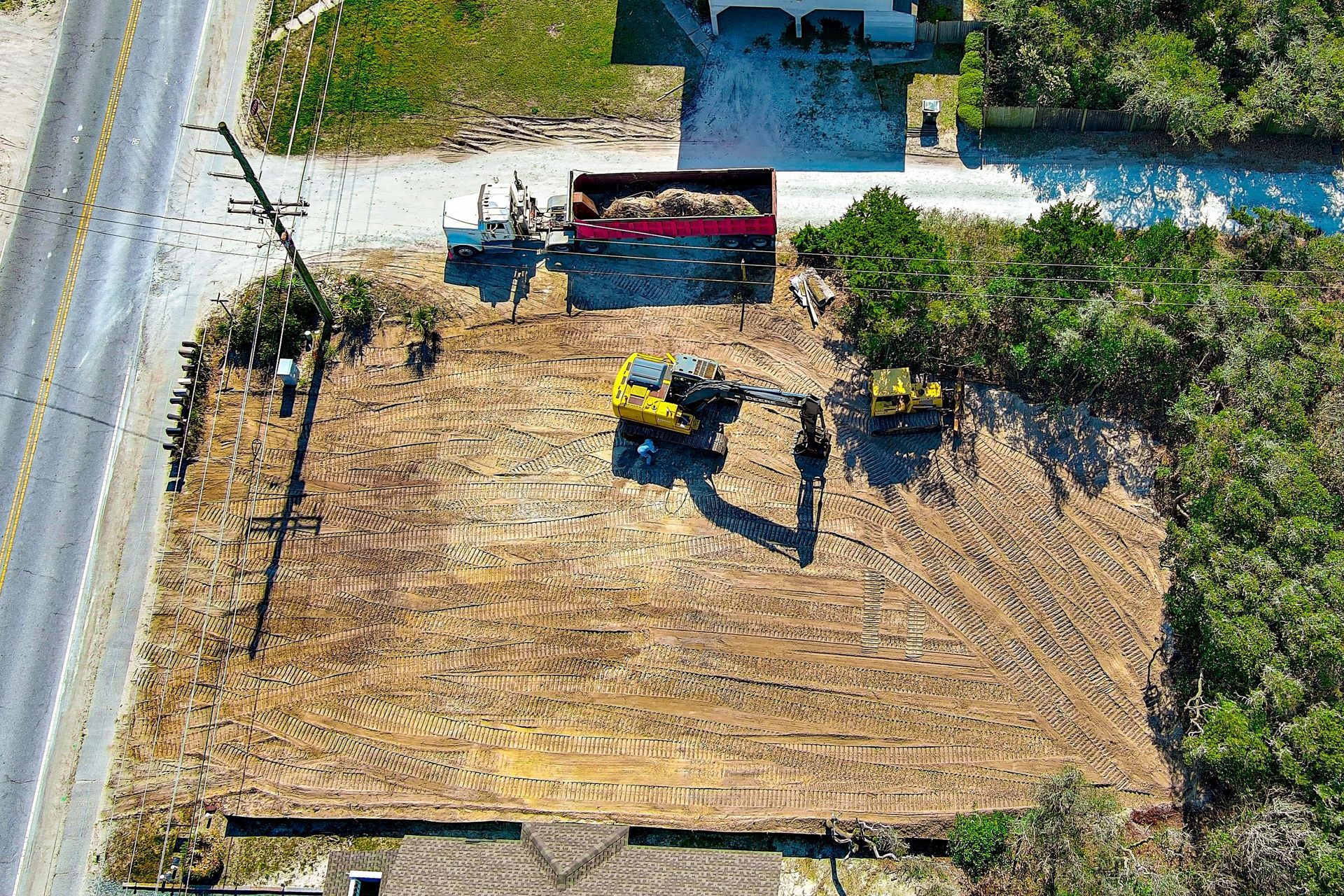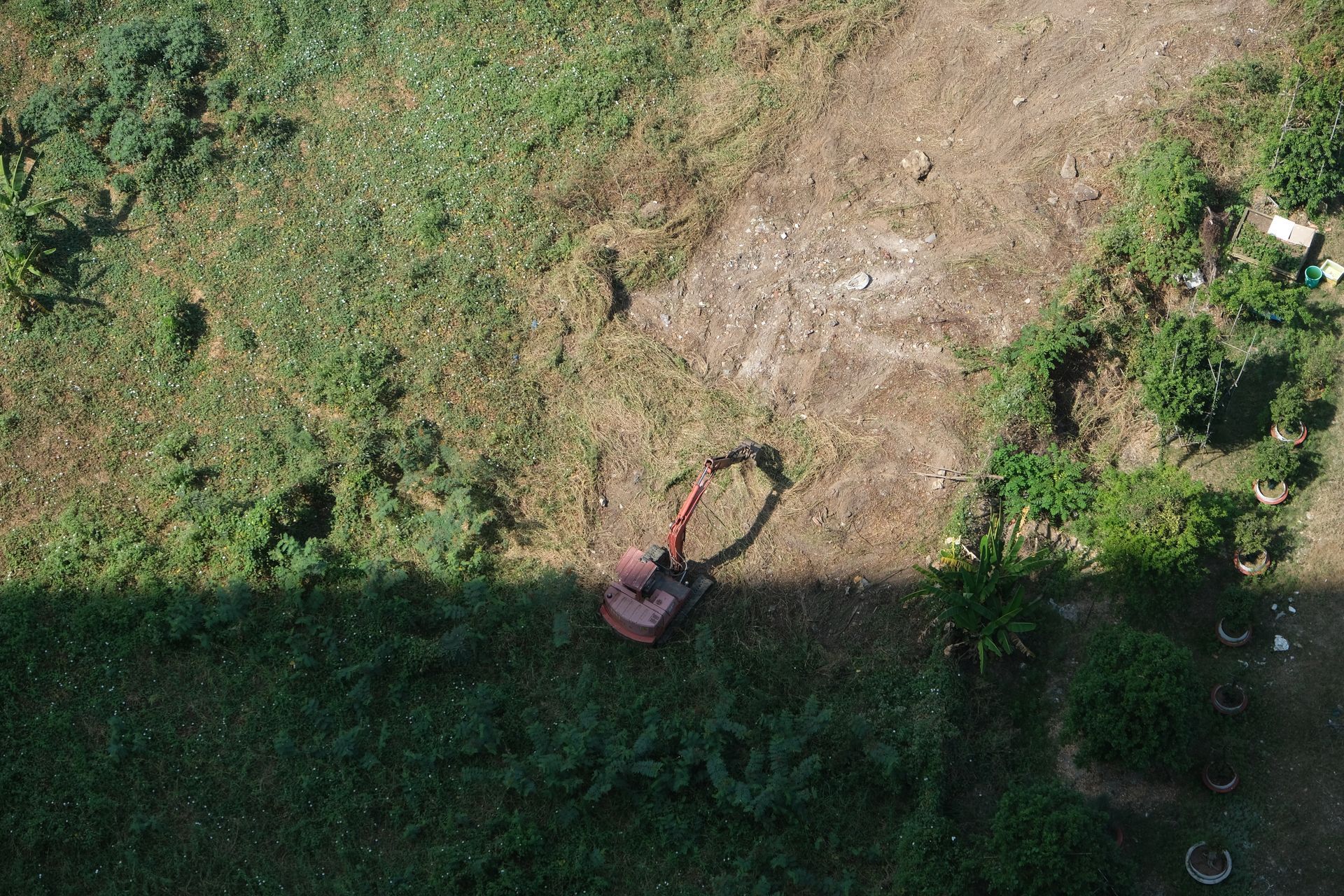Benefits of Professional Soil Grading for New Construction Projects
In the world of construction, the foundation is everything—literally. At Grade Timber Excavating Services, we understand that proper soil grading is a critical step that sets the stage for successful residential and commercial builds. Soil grading involves reshaping the land to ensure proper drainage, stability, and erosion control. In this blog, we'll explore the key benefits of enlisting professional soil grading services and why it's an investment worth making for any new construction project in Springfield, IL, and beyond.
Why Soil Grading Matters in Construction
Soil grading isn't just about moving dirt around; it's a precise process that directly impacts the longevity and safety of your structure. Poor grading can lead to water pooling around foundations, causing cracks, mold growth, and even structural failure over time. Professional grading ensures that the land slopes away from the building, directing water efficiently and preventing costly repairs down the line. Beyond immediate concerns, improper grading can exacerbate issues like soil settlement, which may compromise the integrity of footings and foundations, leading to uneven settling and expensive retrofits years after construction.
At Grade Timber, our team uses advanced equipment and techniques to assess soil composition, compaction levels, and topography. This expertise allows us to create a stable base that supports heavy loads while complying with local building codes. We employ tools such as laser levels and GPS-guided machinery for accuracy, ensuring that the graded surface meets precise elevations and slopes required for optimal performance. This not only aligns with regulatory standards but also incorporates site-specific factors like soil type—whether clay-heavy or sandy—to prevent future issues like differential settlement or poor load-bearing capacity. Soil analysis during grading helps determine bearing capacity, permeability, and compressibility, which are essential for designing robust foundations resistant to environmental forces like wind or seismic activity.
Key Benefits of Professional Soil Grading
1. Enhanced Drainage and Flood Prevention
One of the primary advantages is improved water management. By grading the soil to create gentle slopes—typically a minimum of 5% away from structures—we ensure rainwater and runoff flow away from your property. This reduces the risk of basement flooding, foundation erosion, and landscape damage. In areas like Springfield, where heavy rains are common, professional grading can save homeowners and businesses thousands in potential flood-related repairs.mmsd.com Additionally, effective drainage prevents hydrostatic pressure buildup against foundations, which can lead to cracks and leaks, and it supports healthier vegetation by avoiding waterlogged soil that stifles root growth. Integrating features like swales or French drains during grading further enhances this benefit, channeling water to safe outlets and complying with stormwater management regulations.afsrepair.com
2. Increased Property Stability and Safety
Proper grading compacts the soil to provide a solid foundation for buildings, driveways, and patios. This minimizes settling issues that could lead to uneven floors or cracked walls. Our services at Grade Timber include soil testing to identify any weak spots, ensuring your project stands the test of time. Compaction is achieved through layered filling and mechanical rolling, reaching densities of 95% or higher as per engineering standards, which significantly reduces the risk of voids or shifts under load. For new constructions, this stability is crucial in preventing hazards like trip risks from uneven surfaces or structural instability during seismic events, even in moderate-risk areas like central Illinois.stovallconstructioninc.com Ultimately, a well-graded site promotes overall site safety for workers during construction and occupants afterward.
3. Erosion Control and Environmental Protection
Ungraded land is prone to soil erosion, which can strip away topsoil and harm local ecosystems. Professional grading incorporates erosion control measures like retaining walls, terracing, or hydroseeding, preserving the natural beauty of your site while protecting nearby waterways from sediment runoff. These techniques not only stabilize slopes but also promote biodiversity by maintaining fertile topsoil layers essential for plant life.californiafoundationworks.com In environmentally sensitive areas, such as those near Springfield's waterways, grading plans often include silt fences and erosion blankets to meet EPA guidelines, minimizing the ecological footprint of construction. By preventing sediment pollution, professional grading contributes to cleaner local rivers and reduces the need for ongoing erosion repairs, fostering sustainable development.
4. Cost Savings in the Long Run
While DIY grading might seem tempting, it often leads to mistakes that require expensive fixes, such as re-excavation or foundation reinforcements. Hiring experts like Grade Timber means getting it right the first time, avoiding rework and extending the lifespan of your construction. Proper initial grading can prevent common water damage issues, translating to significant savings on insurance premiums and maintenance over a property's life.aquatechwaterproofing.ca Moreover, by optimizing site preparation, we reduce material waste and construction delays, keeping projects on budget. Long-term benefits include lower utility costs from efficient drainage that prevents issues like frozen pipes in winter or mold remediation, making professional grading a smart financial decision for any new build.thisoldhouse.com
5. Aesthetic and Functional Improvements
Well-graded land not only functions better but looks better too. It allows for seamless landscaping, easier lawn maintenance, and enhanced curb appeal, boosting your property's value. A smoothly contoured site enables creative design elements like multi-level gardens or patios without the limitations of uneven terrain. Functionally, it improves accessibility for vehicles and pedestrians, reducing wear on driveways and walkways.dirtconnections.com In commercial projects, this can enhance customer experience and compliance with ADA standards for sloped surfaces. Overall, professional grading transforms raw land into a polished, versatile canvas that maximizes both usability and market appeal, often increasing resale value through improved aesthetics and reduced risk factors.
Professional soil grading is more than a preparatory step—it's a safeguard for your investment. At Grade Timber Excavating Services, we're committed to delivering top-tier grading solutions tailored to your needs. If you're planning a new construction project, contact us today for a consultation and let us help you build on solid ground.










